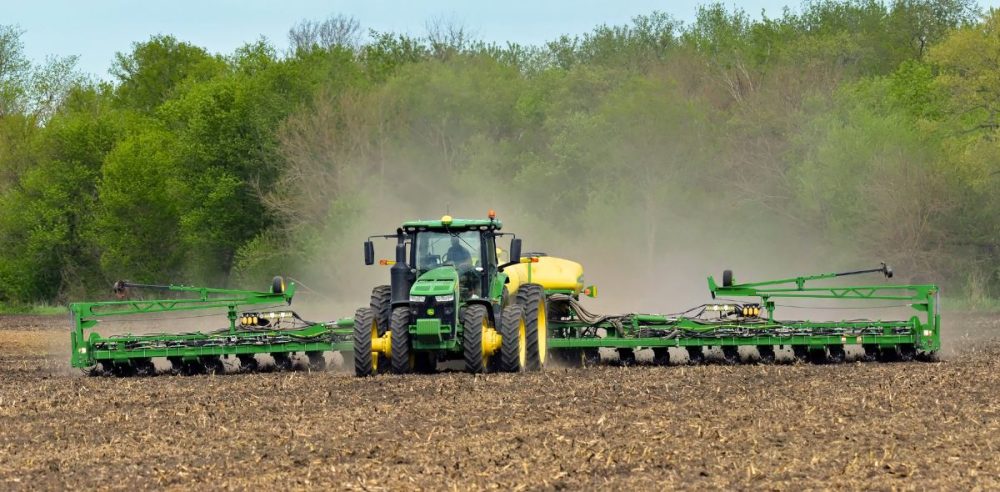Tractor manufacturer John Deere is at the center of a federal lawsuit, accused of unfairly restricting farmers’ ability to repair their own agricultural equipment.
The Federal Trade Commission (FTC), alongside Illinois and Minnesota, filed the suit, alleging that Deere’s practices force farmers to rely solely on authorized dealers for repairs, boosting the company’s profits while limiting farmers’ autonomy.
This lawsuit highlights a growing debate over the right to repair, particularly in rural farming communities where time is critical during planting and harvesting seasons.
The lawsuit claims that John Deere intentionally withholds access to essential software, diagnostic tools, and repair manuals, making it nearly impossible for farmers or independent mechanics to fix equipment, reported NPR. These restrictions lead to delays and compel farmers to pay higher prices at authorized dealerships.
Deere is accused of maintaining a monopoly over repairs, selling proprietary parts at premium prices, and effectively eliminating competition from third-party repair services.
FTC Chair Lina Khan emphasized the stakes for farmers, noting that repair restrictions often result in unnecessary delays during critical agricultural windows. Farmers in rural areas frequently face long drives to authorized repair facilities, leaving expensive machinery idle. Khan described the restrictions as particularly frustrating for those accustomed to self-repair, as they are prevented from utilizing their skills and tools.
For years, Deere has faced criticism regarding its repair approach, especially as its equipment has become more reliant on advanced technology. Farmers argue that this trend while improving machinery capabilities, has also created barriers to maintenance and repairs.
In response to mounting pressure, John Deere recently announced a pilot program to expand farmers’ repair options, per NPR. While the company did not comment directly on the lawsuit, this move may indicate a willingness to address some criticisms. Still, critics argue that the program fails to address monopolistic repair practices, leaving many farmers skeptical of its effectiveness.
This case is not the FTC’s first foray into right-to-repair disputes. The agency previously targeted Harley-Davidson for similar practices. Of note, John Deere and Harley-Davidson were also intensely scrutinized for their DEI practices, as reported by The Dallas Express.


